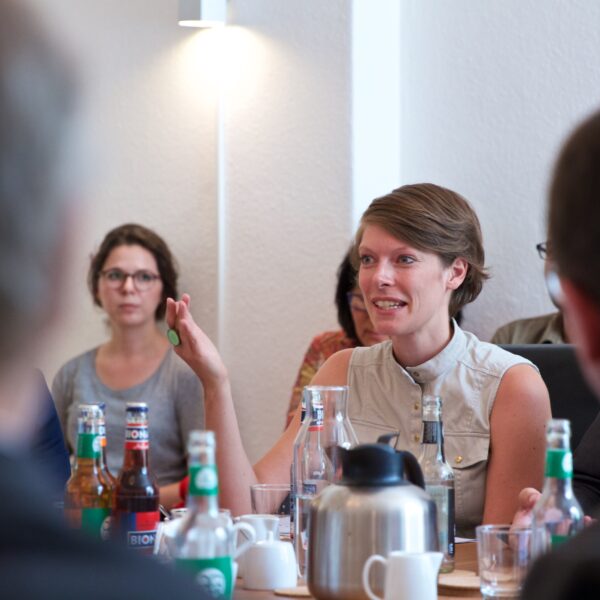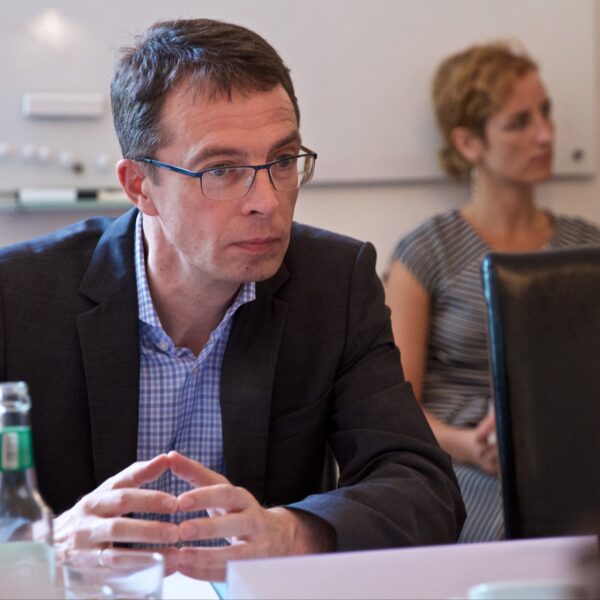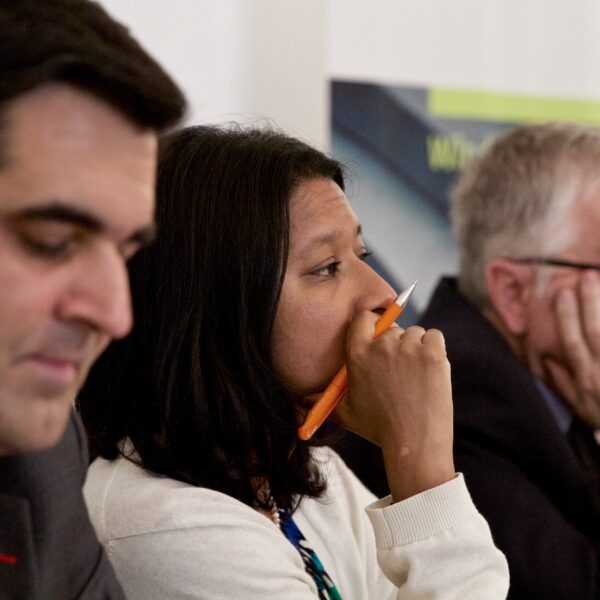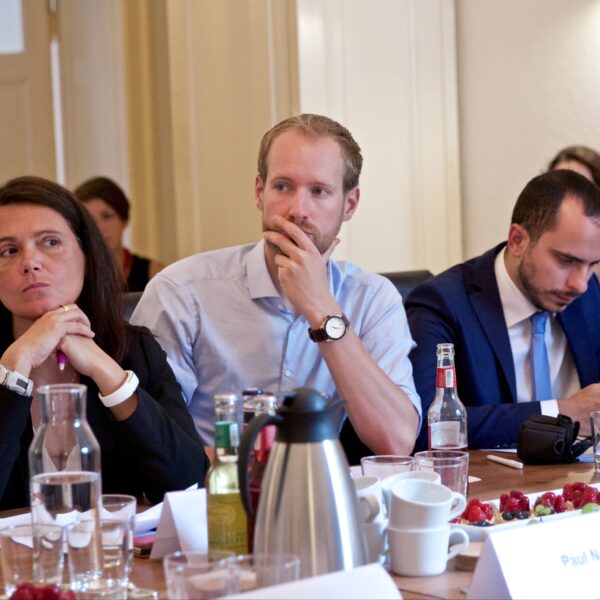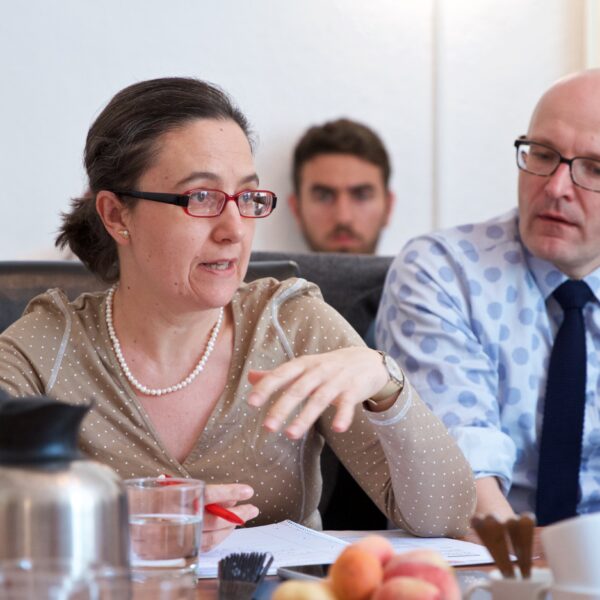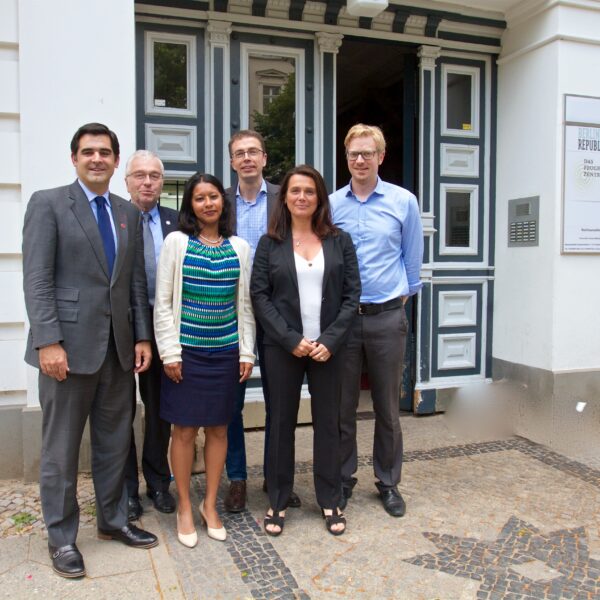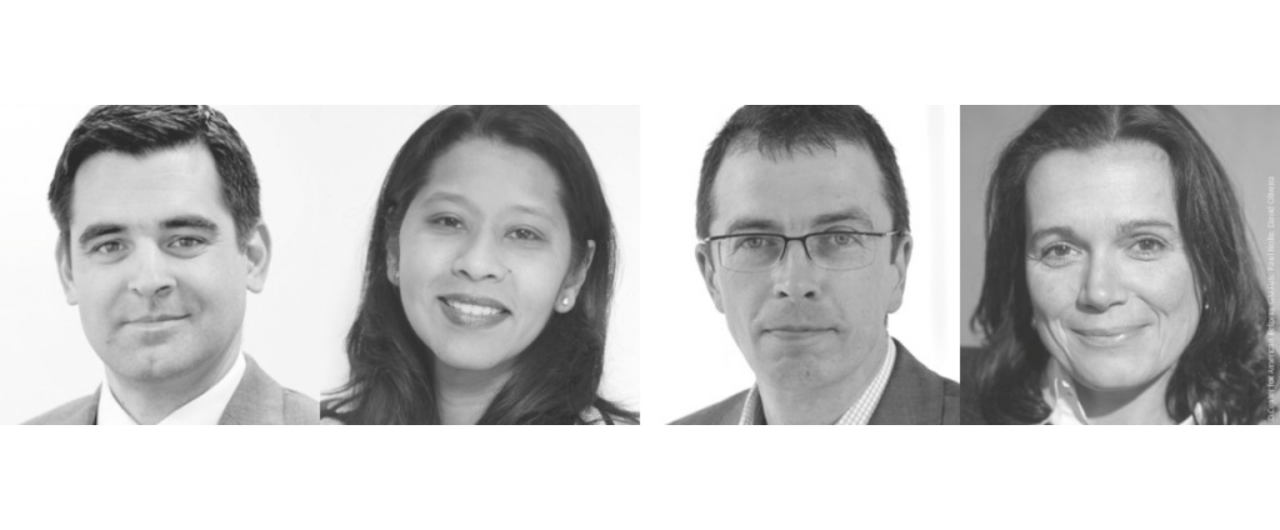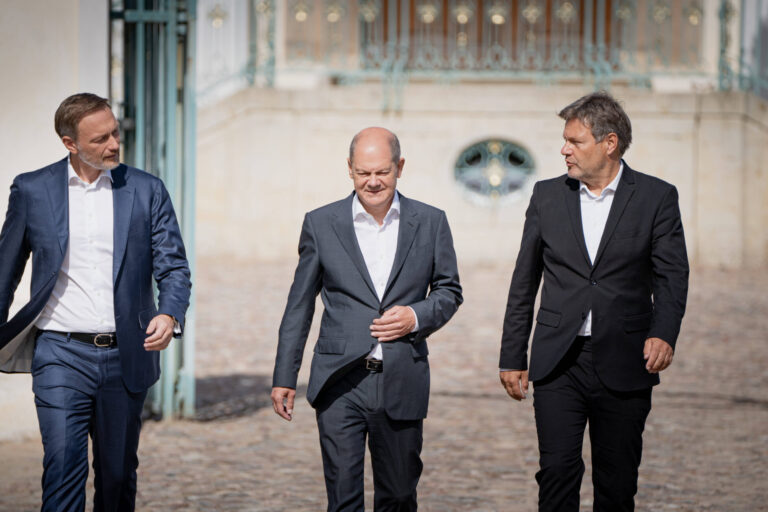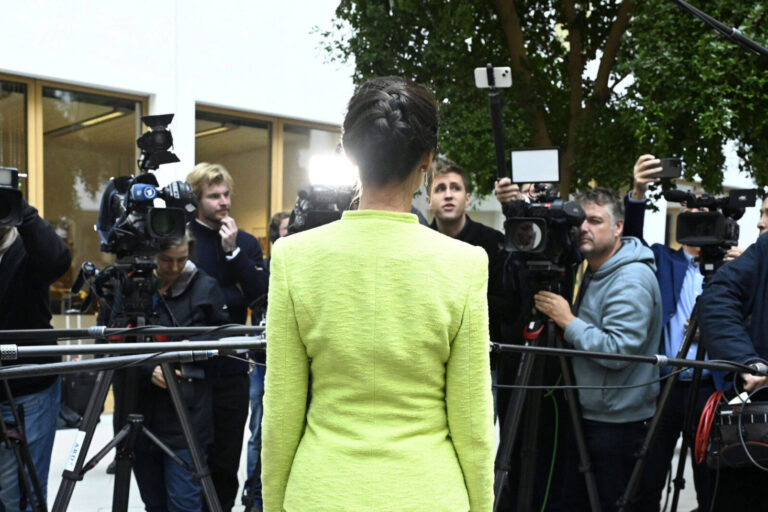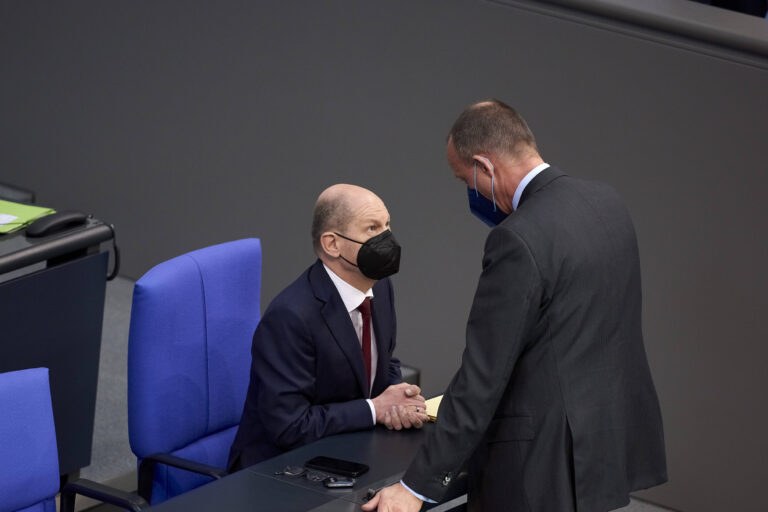On Friday, July 1, the Foundation for European Progressive Studies (FEPS) and Das Progressive Zentrum hosted a roundtable discussion on the US American Presidential Elections. After introductions by Ernst Stetter (Secretary General, FEPS) and Dominic Schwickert (Director, Das Progressive Zentrum), we were delighted to engage in a discussion with Ken Gude (Senior Fellow with the National Security Team, Center for American Progress), Paul Nolte (Professor of Contemporary History, Free University of Berlin), and Barbara Junge (Deputy Editor, taz.die tageszeitung). The roundtable was chaired by Sudha David-Wilp (Deputy Director Berlin Office and Senior Transatlantic Fellow, The German Marshall Fund of the United States).
The US presidential race remains tight and unpredictable as the campaigns of this year’s primary have taken some surprising turns. While Hilary Clinton faced an unexpected strong opponent in the self-declared ‘democratic socialist’ Bernie Sanders, the Republican campaign was dominated by the unexpected rise of multi-millionaire Donald Trump. Valuable political insight directly out of Washington, D.C. were provided by Ken Gude. He addressed the questions of what is currently going on in the campaigns, what is at stake at the election, and how it will affect the United States and Europe. Barbara Junge followed with scenarios on Clinton’s and Trump’s foreign policies. Finally, Paul Nolte compared the historical developments in the US and Europe with respect to the recent rise of populism.
The Republican and Democratic campaigns
Initially, the discussion centred on the campaigns of Trump, Sanders, and Clinton. From a mainstream Republican perspective Trump is far from an ideal candidate. With his ongoing insults towards Muslims, women, and immigrants, the legal case against his university, and with exploiting the Orlando shooting for his campaign, he has caused much opposition towards his nomination among Republicans all across the US. Interestingly, however, Trump also advocates some social policies such as keeping Medicare and the social security system, which are diametrically opposed to the Republican mainstream, but with which a majority of Americans agrees. Hence, for the first time in a long while, there is an inter-candidate consensus in the United States on matters of social security.
Concerning Sanders, our speakers and participants debated his astonishing support from people under the age of 30 (up to 80-85%). There was agreement that the Senator from Vermont successfully managed to address topics young Americans could relate to, such as costs for higher education. However, it was also criticised that the solutions Sanders offered in his campaign were mostly infeasible for the US and that he did not search enough for allies to build a true foundation for his ideas.Hilary Clinton’s current and possible future challenges were also part of our debate. The fact that Clinton has been in the eye of the public for decades was identified as the main problem of her campaign: widespread knowledge about her private life and the fact that she has been part of the political establishment for a long time seem to have been partly detrimental to her campagin. With regard to her future policy agenda, the panellists agreed that Sanders‘ campaign pushed her more to the left, making her a more progressive candidate than she would have been otherwise. However, whether or not this tendency would be maintained in the aftermath of the election was called into question.
The impact on foreign policy
Subsequently, the implications of the Presidential Elections for the US Foreign Policy were considered by our guests. The two prospective presidents are expected to take quite different approaches than Obama’s strategy of „leading from behind“. It was argued that Clinton would probably favour an extended involvement of the US in world affairs and demand more support from its allies, including Germany. Trump’s foreign policy is less predictable. While some participants argued that he might shy away from international responsibility alltogether, others predicted an approach based on narrow calculations of national interest that includes active foreign policy only when it seems beneficial.
The danger of populism
Finally, on a more theoretical plane, the recent rise of populism in our established liberal democracies was addressed. How did Trump (and partly also Sanders) and the Alternative für Deutschland (AfD) manage to gain such strong and lasting momentum? It was argued that the current rise of populism points to a deep crisis of democracy, which is shared by the US and most parts of Western Europe (read Paul Nolte’s contribution on this issue here). This crisis is in some respects similar to the historical situation of the 1920s and 1930s with the important difference, that unlike then, these days the crisis is not – or at least not primarily – a crisis of institutions. As one possible remedy to populism, the participants identified that progressives and all defenders of liberal democracies should voice more enthusiasm for our core values and partially invoke a more emotional language. We should not give simple answers as populists do, but clear messages are perhaps more necessary than ever.
The roundtable programme can be found here. More pictures are available here.
